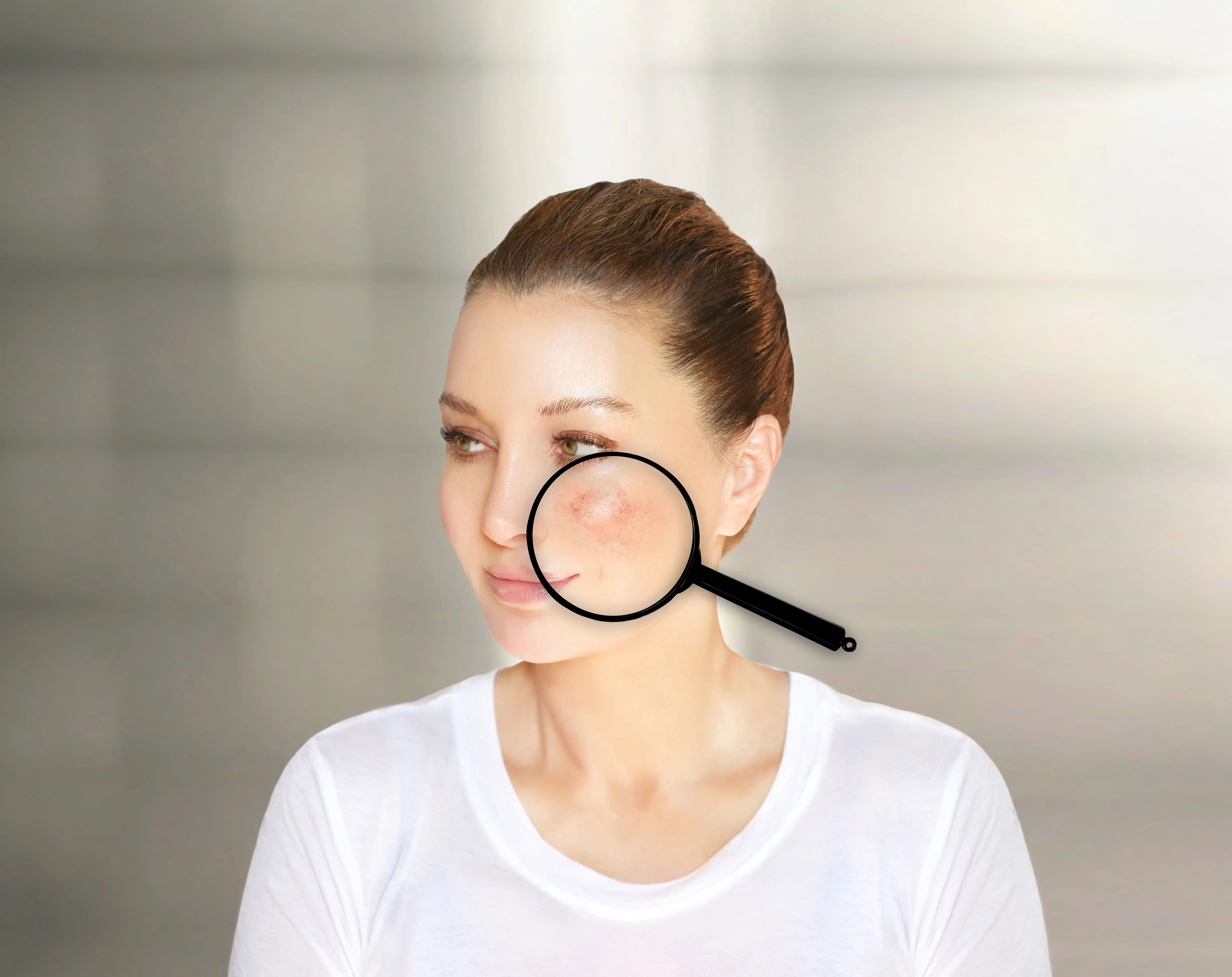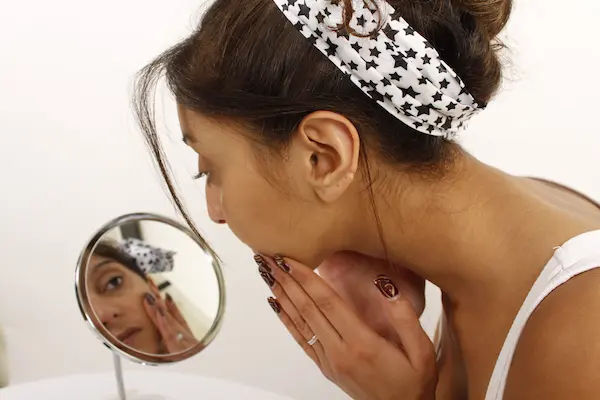How To Get Rid of Acne: A Comprehensive Guide
Discover how to get rid of acne with this comprehensive guide. Explore effective treatments, skincare tips, and lifestyle changes for clearer, healthier skin.

Written by Dr Shreya Sarkar
Last updated on 13th Jan, 2026
Acne is one of the most prevalent skin conditions, affecting millions of people worldwide. It can occur at any age, though it is most commonly associated with teenagers and young adults. Acne can appear on the face, chest, back, shoulders, and even upper arms, leading to emotional distress and diminished self-esteem for many individuals. Thankfully, with the right approach, acne can be managed effectively. In this article, we will explore the causes, types, and available treatments for acne, providing actionable advice to help you take control of your skin health.
Understanding Acne
Acne occurs when hair follicles become clogged with oil, dead skin cells, and bacteria, leading to inflammation and blemishes. These include:
Whiteheads: Closed clogged pores that form under the skin.
Blackheads: Open clogged pores where the oil and debris oxidise and turn dark.
Papules: Small, red, tender bumps on the skin.
Pustules: Pimples filled with pus at the surface of the skin.
Nodules: Large, painful, solid bumps deep within the skin.
Cystic Lesions: Deep, painful cysts filled with pus that can lead to scarring.
Causes of Acne
Acne can develop for a variety of reasons, often stemming from a combination of factors:
Hormonal Changes: Hormones play a key role in acne development. Increased levels of androgens during puberty, menstruation, pregnancy, or conditions like polycystic ovary syndrome (PCOS) can trigger more oil production in the skin and acne.
Diet: A diet rich in high-glycemic foods (such as white bread, pasta, and sugary snacks), as well as dairy products, can exacerbate acne.
Stress: Stress can stimulate the release of hormones like cortisol, which may lead to increased oil production and worsen acne.
Genetics: Family history is an important factor. If your parents had acne, you’re more likely to develop it.
Medications: Certain medications, including corticosteroids and lithium, may trigger acne flare-ups.
Environmental Factors: Pollution, high humidity, and exposure to certain environmental chemicals can also contribute to acne formation.
Over-the-counter treatments for Acne
Managing mild to moderate acne can be effectively achieved with various over-the-counter (OTC) products. Here are some key active ingredients to look for:
Benzoyl Peroxide: This powerful ingredient targets and eliminates acne-causing bacteria while reducing inflammation.
Salicylic Acid: A beta-hydroxy acid (BHA) that exfoliates the skin, unclogs pores, and reduces redness.
Sulfur: With its antibacterial and oil-absorbing properties, sulfur helps keep acne under control.
Alpha Hydroxy Acids (AHAs): These acids exfoliate dead skin cells, reduce inflammation, and improve the appearance of acne scars.
These ingredients are available in various forms, such as creams, gels, masks, and cleansers. To minimise irritation, start with a lower concentration and gradually increase the strength as needed
Prescription Treatments for Acne
Prescription treatments can offer more effective solutions for managing acne when over-the-counter options fall short. These treatments are tailored based on the severity and type of acne:
Topical Medications:
Retinoids and Retinoid-like Drugs: These include tretinoin (Retin-A), adapalene (Differin), and tazarotene (Tazorac). They work by increasing skin cell turnover, preventing hair follicles from becoming clogged.
Antibiotics: Common options include clindamycin with benzoyl peroxide (Benzaclin, Duac) and erythromycin with benzoyl peroxide (Benzamycin). They help reduce bacteria and inflammation on the skin.
Azelaic Acid: This naturally occurring acid has antibacterial properties and can be effective in treating acne.
Salicylic Acid: Often used in combination with other treatments, salicylic acid helps to unclog pores.
Oral Medications:
Oral Antibiotics: These are used for moderate to severe acne and include options like doxycycline and minocycline, which work by reducing bacteria and inflammation.
Oral Contraceptives: Prescribed for women, these medications help regulate hormones that can cause acne.
Isotretinoin: A powerful medication reserved for severe acne that hasn't responded to other treatments. It requires close monitoring due to potential side effects, including birth defects if taken during pregnancy.
Lifestyle Changes to Complement Acne Treatment
While prescription treatments can be highly effective in managing acne, incorporating certain lifestyle changes can enhance their effectiveness and support overall skin health. Here are some key lifestyle adjustments to consider:
1. Maintain a Consistent Skincare Routine
Cleanse your skin gently twice a day using a mild, non-comedogenic cleanser.
Avoid harsh scrubbing or over-washing, which can irritate the skin and worsen acne.
Moisturise regularly with a non-comedogenic moisturiser to keep the skin hydrated without clogging pores.
Always apply sunscreen with at least SPF 30 during the day to protect your skin from UV damage.
2. Adopt a Balanced Diet
Consume a diet rich in fruits, vegetables, whole grains, and lean proteins to provide essential nutrients for healthy skin.
Limit intake of high-glycemic foods (such as sugary snacks and refined carbs) and dairy products, as they may contribute to acne flare-ups in some individuals.
Stay hydrated by drinking plenty of water throughout the day.
3. Manage Stress
Practice stress-reducing techniques such as mindfulness, meditation, yoga, or deep-breathing exercises.
Engage in regular physical activity, as exercise can help reduce stress and promote overall well-being.
4. Get Adequate Sleep
Aim for 7-9 hours of quality sleep each night to support your body's natural healing processes.
Establish a consistent sleep routine by going to bed and waking up at the same time each day.
5. Avoid Touching Your Face
Keep your hands away from your face to prevent the transfer of bacteria and oils that can cause breakouts.
Avoid picking or squeezing pimples, as this can lead to scarring and further inflammation.
6. Choose Hair and Skin Products Wisely
Opt for non-comedogenic and oil-free products to reduce the risk of clogged pores.
Be cautious with hair care products, as some ingredients can contribute to acne along the hairline and forehead.
7. Maintain Cleanliness
Change your pillowcases, sheets, and towels regularly to prevent the buildup of bacteria and oils.
Clean your makeup brushes and applicators frequently to avoid transferring bacteria to your skin.
Home Remedies for Acne
While not a substitute for medical treatment, certain home remedies can complement acne care. Here are a few natural methods you might consider give it a try:
1. Tea Tree Oil: Known for its anti-inflammatory and antimicrobial properties, tea tree oil can help reduce acne lesions. Dilute it with a carrier oil (like coconut or jojoba oil) and apply it to the affected areas.
2. Honey and Cinnamon Mask: Both honey and cinnamon have antibacterial properties. Mixing them together to form a mask and applying it to your face for about 10-15 minutes can help soothe inflamed skin.
3. Green Tea: Rich in antioxidants, green tea can reduce inflammation and fight bacteria. You can use cooled brewed green tea as a facial rinse or place the tea bag on the affected areas.
4. Aloe Vera: Aloe vera has soothing and healing properties. Apply pure aloe vera gel directly to the skin to help reduce redness and swelling.
5. Apple Cider Vinegar: Its acidic properties can help balance the pH of the skin and fight bacteria. Dilute apple cider vinegar with water (1 part vinegar to 3 parts water) and use it as a toner.
Conclusion
Getting rid of acne requires a multifaceted approach. By following a consistent skincare routine, using the right treatments, making healthy lifestyle changes, and seeking professional care, you can take control of your acne and achieve clearer, healthier skin. Remember, patience and persistence are key, as it may take time to find the combination of treatments that works best for you. Everyone's skin is different, so listen to your skin and adjust your routine as needed. With these steps, you’ll be on your way to managing and reducing acne effectively.
Consult Top Dermatologist
Consult Top Dermatologist
Dr. Mayuri Jain
Dermatologist
11 Years • MBBS, MD Dermatology , Venereology & Leprosy
Delhi
Dr Mayuri Jain Clinic, Delhi
Dr. Kavitha Killaparthy
Dermatologist
23 Years • MBBS,DIPLOMA(DERMATOLOGY,VENEREOLOGY,LEPROSY)
Hyderabad
JDS Skin & Hair Clinic, Hyderabad

Dr Ekansh Shekhar
Dermatologist
10 Years • MBBS MD
Lucknow
Apollo Clinic Hazratganj, Lucknow
Dr.j Girishma
Dermatologist
6 Years • MBBS MD DERMATOLOGY
Bengaluru
Apollo Medical Center, Marathahalli, Bengaluru
Dr. Sudheer Kumar S
Dermatologist
7 Years • MBBS, MD (DVL)
Tirupati
Nil, Tirupati


